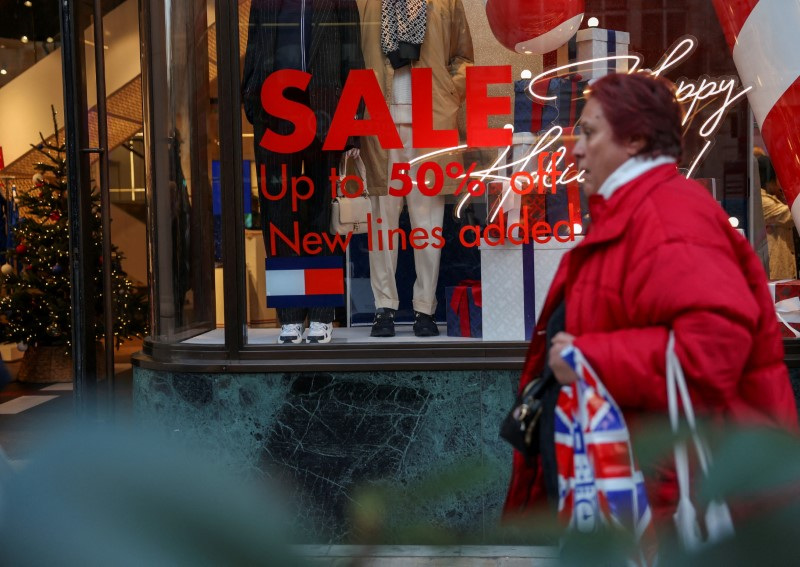By Andy Bruce and Suban Abdulla
LONDON (Reuters) -British retail sales fell unexpectedly in December, according to data on Friday that raised the risk of an economic contraction in the fourth quarter, adding to the challenges faced by finance minister Rachel Reeves.
Retail sales, adjusted for the inclusion of the Black Friday sales at the start of the month, fell by 0.3% in month-on-month terms in December after a downwardly revised 0.1% expansion in November, the Office for National Statistics said.
Sterling fell by around a quarter of a cent against the U.S. dollar after the data, dipping below $1.22.
Economists polled by Reuters had forecast a monthly increase of 0.4% in sales volumes from November.
Friday's figures add to a run of lacklustre economic indicators since Reeves announced the biggest tax rises in Britain since 1993 in October, and are likely to bolster expectations for a Bank of England interest rate cut next month.
Retail sales for the fourth quarter as a whole fell by 0.8%, which is likely to drag on economic growth in the fourth quarter by around 0.04 percentage points, the statistics office said.
With growth already flatlining during the three months to November, the contribution of retail sales on its own could be enough to tip the economy into contraction for the fourth quarter, assuming no offsetting growth from other parts of the economy.
"Today's release is further evidence that the economy had very little momentum at the end of last year and, at the margin, increases the downside risk to our forecast that the economy avoided a contraction in Q4," said Alex Kerr, UK economist at Capital Economics.
Excluding motor fuel, retail sales dropped by 0.6% on the month.

"This was driven by a very poor month for food sales, which sank to their lowest level since 2013, with supermarkets particularly affected," senior statistician Hannah Finselbach said.
Total (EPA: TTEF ) retail sales were 3.6% higher than a year ago, compared with a median forecast for 4.2% annual growth.

